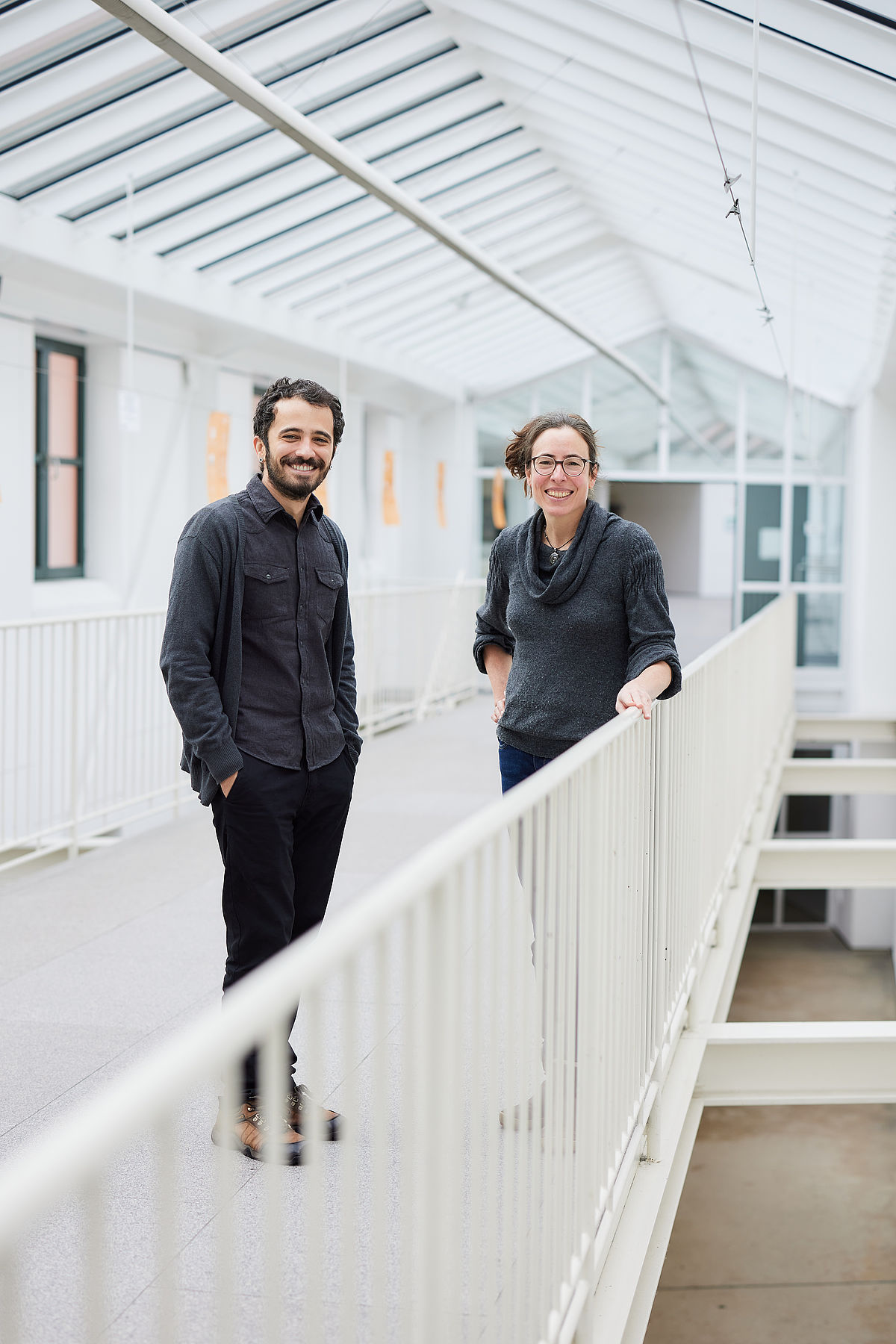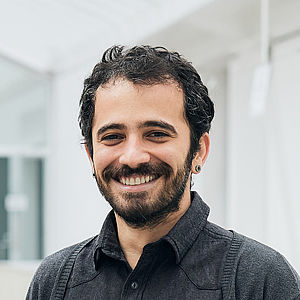Dr João De Deus Vidal Jr. has received a prestigious International Climate Protection Fellowship for postdocs with climate expertise from the Alexander von Humboldt Foundation. In March 2022, he joined the University of Passau to study the biodiversity of African mountains and possible effects of a changing climate. Supported by Professor Christine Schmitt (Chair of Physical Geography with a focus on Human-Environment Research), Dr Vidal will use his two-year research visit to develop a list of vulnerable plants in key regions for the conservation of biodiversity in the Afromontane regions. Before coming to Germany, he obtained a PhD in biological sciences at the São Paulo State University “Julio de Mesquita Filho”, Brazil, and later worked as a postdoctoral fellow researching mangrove forests and their adaption to climate change at the State University of Campinas. In 2019, during a one-year research visit to the Afromontane Research Unit at the University of the Free State in Phuthaditjhaba, South Africa, Dr Vidal studied plant endemism and biogeography in African mountains. This was followed by another brief stint as a postdoc at his home institution in Brazil, after which he applied for his fellowship in Germany. Dr Vidal’s research interests lie in the field of biogeography and include plant ecology, mountain vegetation and how it responds to changes in the climate.
Dr Vidal, you have been granted one of the renowned Alexander von Humboldt Fellowships, which is a big honour in the research community. How did you go about getting one?
That was initially actually a sad story. Because of a financial crisis in Brazil, most budgets for research were slashed. As a result, many scientists had to leave the country to be able to conduct their research, and I was one of them. Coming back from doing research in South Africa in 2019, I wanted to establish my own ecology laboratory. But, unfortunately, after a whole year I still couldn’t find funding for my project, as the national budget for sciences was the smallest since 2004. So I had to start doing jobs that weren’t related to research until I heard about the Humboldt Fellowship from a friend. I decided to apply and invested a lot of time in the project development and in preparing myself. For one year, I practised for the interview and learned German as well. When it came to the selection week, I was very nervous and could barely sleep. But I managed to deliver a good presentation and by the end of the week I received the confirmation that I had been selected. My whole life changed at that point. I’d come close to giving up my research because of the situation in Brazil. Now, I am very excited! For me, it’s the best possible scenario for carrying on my ecological research. Germany is one of the leading countries in climate change research. And I am at a prestigious university surrounded by a very positive environment.
When I received the confirmation that I had been selected, my whole life changed.

International cooperation for the protection of biodiversity: Prof. Dr Christine Schmitt and Dr João De Deus Vidal Júnior research the biodiversity of African mountain forests.
For your research, you left Campinas, a Brazilian city of 1.2 million inhabitants and moved to the small German town of Passau. How did that feel? Did you have a good start here?
Initially, my plan was to apply to Bonn, where Professor Schmitt was working when we first started talking to each other. When I heard that she’d moved from Bonn to Passau, my first impression was that it might be too small. It’s true that Campinas is a very big city and I appreciate the possibility of going to restaurants and clubs, hanging out with friends and meeting new people. After my first research trip to South Africa, where I lived in a very small town, I was a bit scared of moving to a small city once again. But coming to Passau I realised it may be small, but it has everything you need! There are many young people and I like the atmosphere, the beautiful landscape, the architecture, the history and the university campus. At the beginning, I received a lot of support from the Welcome Centre, especially from Tatiana and Pammela. Because they are Brazilian too, I arrived already having at least two friends. Compared to Campinas, Passau is a big change, but a positive one!
For the next two years, you will be working in Professor Christine Schmitt’s team, setting your focus on African mountain vegetation. What is your research about?
The African continent has a huge diversity of plants. There are more than 4,000 species and of those, more than 3,000 don’t occur anywhere else in the world. Much of the Afromontane vegetation is still unknown to science, and papers about new species are published all of the time. Plants growing in the mountains offer us a valuable opportunity to understand the influence of climate on the distribution of vegetation. Mountains are more sensitive to variations in climate, because they have a temperature gradient: in simple words, it gets colder as you go higher. When the climate changes, you can slowly see the plants shifting up and down the mountain, so they are a very promising object of study.
My challenge will be to gather everything that has been published so far about the Afromontane plants and to compile a data set for the mountain vegetation of the whole continent. I will collect this information from African herbariums, plant museums, and internet repositories like the Global Biodiversity Information Facility or Tropicos. Using this data and some statistical modelling tools I would like to project what will happen to the plants’ distributions in future scenarios, for example in case the temperature increases by 1.5 or 2 degrees. Finally, we will use the outcomes to generate vulnerability maps and lists of vulnerable species to guide the conservation efforts.

Dr João De Deus Vidal Júnior
How does the vegetation of African mountain regions react to climate change?
How does the vegetation of African mountain regions react to climate change?
Dr João De Deus Vidal Júnior holds a Humboldt Research Fellowship for postdoctoral and experienced researchers from the Alexander von Humboldt Foundation. From March 2022, he will be conducting research for two years in Professor Christine Schmitt's team at the Chair of Physical Geography with a focus on Human-Environment Research. Dr Vidal's research interests lie in the field of biogeography and include plant ecology, mountain vegetation and their responses to climate change.
Wow, that sounds like a lot of work! Does that mean you’re investigating African mountains from your desk in Passau? Or are you also planning on doing field work on the African continent?
I know it sounds a bit strange that I am a Brazilian researching Africa living in Germany. But if you think of it, Alexander von Humboldt himself was a German scientist developing research in South America, so it happens! (laughs) Actually, it was one of the Humboldt Foundation’s instructions for project proposals that projects should not involve international field sampling due to the short time window for fellowships like mine and to make sure I have enough time to write my papers. Therefore, my research will mostly work with data that previous researchers already sampled and I will keep collaborating with them.
How common is the issue of biodiversity loss in Afromontane regions yet? Is it a new topic?
Researchers are already talking about biodiversity changes in global mountain regions, but very few about the Afromontane. In the IPCC (Intergovernmental Panel on Climate Change) Report of 2019 there was a chapter about mountain ecosystems for the first time, but there was no data for Africa. This had been neglected. Fortunately, the 2022 IPCC Report contains some data, so they are moving in the direction of recognising the African mountains as an important area of conservation. We will use our results to provide more arguments in favour of targeting these regions.
The Intergovernmental Panel on Climate Change is moving in the direction of recognising the African mountains as an important area of conservation.
Two years of living and doing research in Germany lie ahead of you. What will be challenging?
A personal challenge to me is leaving my family in times like this, when the pandemic is still not over. One of the requirements of the Humboldt Fellowship is that you are not allowed to go back to your home country during the research visit, so for two years I will not be able to spend Christmas with my family. Concerning my project, I think the most difficult part will be to handle such a huge data set. I will have to gather information from many different sources. When dealing with such a volume of data you always have to be careful to keep the quality and make sure you are translating the important messages you find in a way that they are clear and accessible to the general public, not only to scientists.
Professor Christine Schmitt
How can I reconcile the conservation and utilisation of natural resources and biodiversity?
How can I reconcile the conservation and utilisation of natural resources and biodiversity?
Professor Christine Schmitt has been Chaired Professor of Physical Geography with a focus on Human-Environment Research at the University of Passau since April 2021. She is an active member of the scientific advisory board of the Society for Tropical Ecology (gtö) and of the BayWISS Joint Academic Partnership Life Sciences and Green Technologies and has experience in policy support at an international level.
More Information





